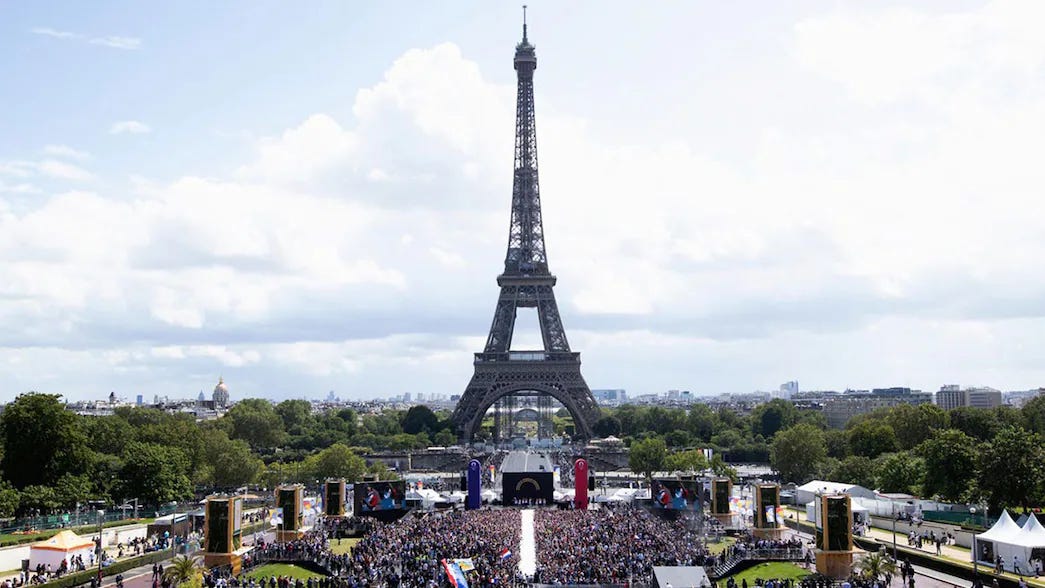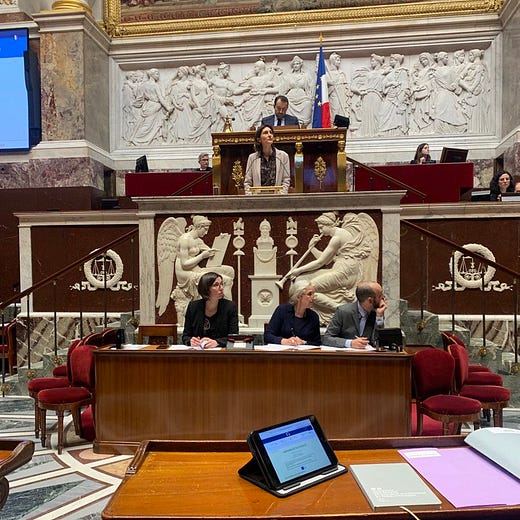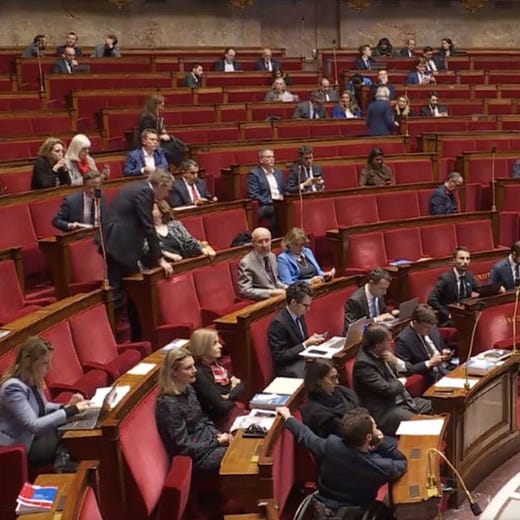Paris 2024: Countdown To The Olympic Games
Less than 500 days to go. Construction is (mostly) on schedule, but concerns about crowds and security remain.
It’s been almost 6 years since Paris was officially awarded the Olympic and Paralympic Games that will be held from July 26 to August 11, 2024. Across the city, there is a furious amount of work being done to spruce up buildings and beef up infrastructure in a race to meet that deadline.
Last week, Paris passed the 500-day mark until the games start, and the media and elected officials used the occasion to measure progress made — and just how much remains to be done.
France’s Minister of Sports and the Olympic and Paralympic Games Amélie Oudéa-Castéra, who is overseeing preparations, presented updates to the Assembly and Senate. She told Le Monde that she expects to get little credit if everything goes right, but plenty of blame if things go sideways. “We have no room for error,” she said. “This awareness, I have it every day.”
President Emmanuel Macron spent a day meeting with financial partners, local transportation officials, and other organizers to get the latest.
The company overseeing major construction across 60 sites, Solideo, has said that 89% should be completed by the end of the year. The only major concern is the newly named Adidas Arena which has been delayed by some supply chain issues but is still expected to be done early in 2024. On the other hand, the committee overseeing the €4.38 billion budget has raised concerns about cost overruns.
Paris Mayor Anne Hidalgo, while fighting off controversies about a garbage strike that has left sidewalks piled high with trash, insisted everything was on track though plenty remains to be done.
“We still have a lot of challenges to meet, to be ready on safety, on the delivery of equipment, on transport,” she said in an interview. “I have no concerns about these subjects, but it requires a lot of work and coordination. There is obviously an international context, a context of economic and geopolitical instability, which must be taken into account. In France, we can clearly see that the social climate is not good.”
Seine Security
There is growing concern about plans to hold the opening ceremonies along the banks of the Seine river. The spectacle is set to include 100 boats carrying athletes for the traditional procession. They will start at the Pont d'Austerlitz and float past Notre Dame cathedral and the Louvre to the Pont d'Iéna near the Eiffel Tower.
The plan calls for 100,000 paying spectators to sit on seats placed along the lower banks, and another 500,000 spectators watching from street level. But with 600,000 people expected, security officials are warning that they aren’t sure they can ensure the safety of that many people in such an open space. And local transportation officials insist the network of metro and bus lines can only handle a maximum of 500,000. As such, there is some talk about limiting that number to 400,000 along the 6km stretch for the event.
Just as worrisome: Officials are counting on private security agencies to provide some of the 22,000 agents needed each day during the games. But with these companies already reporting trouble hiring, there is a discussion about whether organizers will have to turn to the military to supplement those numbers. Overall, the games will represent an almost unprecedented mobilization of internal security between private groups, police, and the military, according to Le Figaro.
In other news…
— Speaking of the Seine, Olympic organizers are still insisting they will hold some swimming events in the river following a massive cleanup operation. This plan is being met with much skepticism. But here’s an in-depth look by The Local and another by Time magazine at efforts to revive a river that is so filthy, public swimming has been banned more almost a century.
In a tweet, President Macron said that cleaning up the Seine could be one of the Games’ most important legacies.
— European Parliament members are calling on Paris organizers to drop a plan to roll out a massive video surveillance system as part of security plans for the games. Critics have labeled the system a major invasion of privacy and the kind of tactics used by authoritarian regimes.
— The French National Assembly voted to allow the use of a new form of genetic testing to combat doping among athletes at the games.
— Want to volunteer to work at the games? Now is your chance. They need 45,000 volunteers to do things like welcome and guide visitors. You don’t have to be French or live in France to volunteer.
Chris O’Brien
Le Pecq








